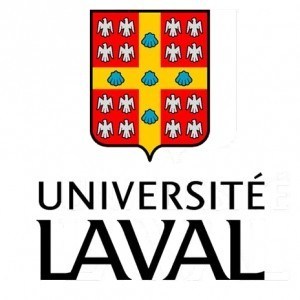Photos of university / #ulaval
The Bachelor of Sociology program at Laval University offers students a comprehensive introduction to the scientific study of society, social relationships, and social institutions. Designed to provide a strong foundation in sociological theories, research methods, and critical thinking, this program prepares graduates to analyze complex social phenomena and contribute to social development and policy-making processes. Throughout the coursework, students explore a wide range of topics such as social inequalities, urbanization, globalization, cultural dynamics, and the impact of technology on society. The curriculum emphasizes both qualitative and quantitative research techniques, equipping students with essential skills for data collection, analysis, and interpretation. Engaging with contemporary social issues, students are encouraged to develop a nuanced understanding of diverse populations and social structures, fostering a global and inclusive perspective. The program also offers opportunities for internships and fieldwork, enabling practical experience and closer engagement with community organizations. Graduates of the Laval University sociology program are well-prepared to pursue careers in social research, community development, public policy, education, and various roles in government and non-governmental organizations. With a faculty comprised of renowned sociologists and researchers, students benefit from a stimulating academic environment that promotes critical inquiry and active participation in ongoing sociological debates. The program aims to nurture socially responsible graduates who are capable of analyzing societal challenges and contributing meaningfully to social betterment. Whether students aim to continue their studies in graduate programs or to enter the workforce directly, Laval University’s Sociology program offers a rigorous and enriching educational experience that combines theoretical knowledge with practical application.
The Sociology program at Laval University offers a comprehensive and in-depth exploration of social behavior, institutions, and structures. This program aims to equip students with a solid theoretical foundation and practical research skills necessary to analyze and understand complex social phenomena. Throughout their studies, students will examine various topics, including social inequality, cultural dynamics, social change, and institutions such as family, education, and government. The curriculum combines coursework, case studies, and research projects to foster critical thinking and analytical skills.
Students will have the opportunity to study the role of race, gender, ethnicity, and class in shaping individual and collective experiences. The program emphasizes contemporary sociological theories and methodologies, encouraging students to develop expertise in qualitative and quantitative research techniques. Fieldwork, internships, and collaborative projects are integrated into the program to provide experiential learning opportunities and prepare graduates for careers in research, social services, public policy, or further academic pursuits.
The faculty members are renowned scholars committed to mentoring students and promoting innovative research. The program also emphasizes the importance of multiculturalism and diversity, reflecting Laval University's commitment to fostering an inclusive academic environment. Graduates of the Sociology program will be equipped with critical insights and practical skills to contribute meaningfully to societal development and policymaking. Overall, this program is designed to prepare students for dynamic careers in various sectors by providing rigorous academic training and fostering a deep understanding of social dynamics.
The Bachelor of Sociology program at Laval University requires students to complete a total of 90 credits, which typically includes coursework, seminars, and a capstone project. The curriculum is designed to provide students with a comprehensive understanding of social phenomena, societal structures, and analytical methods. The program emphasizes the development of critical thinking, research skills, and the ability to interpret complex social data. Core courses generally cover topics such as Principles of Sociology, Social Theory, Research Methods in Sociology, Statistics, and Social Research Design. Students also have the opportunity to choose elective courses tailored to their interests, including areas such as Sociology of Gender, Sociology of Culture, Urban Sociology, and Medical Sociology. In addition to coursework, students must participate in seminars and complete a final research project or thesis, which demonstrates their ability to conduct independent sociological research. Language proficiency in French and English might be required or recommended, given the bilingual environment of the university. Practical internship placements may be available or encouraged to give students real-world experience. To graduate, students must achieve a minimum grade point average as specified by the university's academic policies. The program aims to prepare graduates for careers in research, social services, policy analysis, or further studies at the graduate level. Admission criteria typically include a high school diploma with requisite grades, and prospective students may need to provide motivation letters or participate in interviews. Overall, the program offers a rigorous training in sociological theories and methodologies, fostering an analytical mindset and social awareness integral to understanding contemporary societal issues.
Funding opportunities for the Sociology program at Laval University are primarily available through a variety of sources designed to support both domestic and international students. Students enrolled in the program may benefit from provincial and federal government financial aid programs, including grants, bursaries, and loans. The Quebec government offers financial assistance through programs such as the Quebec Loans and Bursaries Program, which provides eligible students with financial support based on their economic situation. Additionally, Laval University itself provides several scholarships and bursaries specific to students in the Faculty of Social Sciences, including merit-based scholarships for outstanding academic performance and need-based bursaries to assist students facing financial difficulties.
International students pursuing sociology studies at Laval University can explore funding options such as international scholarships, external grants, and sponsorship opportunities. Laval University encourages internationalization and often partners with external organizations and government agencies to facilitate access to financial aid programs tailored for international students. For example, the university collaborates with organizations like the Canadian Commonwealth Scholarship Program and the Pierre Elliott Trudeau Foundation, which offer substantial financial support for outstanding students engaged in social sciences research.
Research assistantships and teaching assistantships also constitute significant forms of financial support for graduate students enrolled in the sociology program. These positions are usually offered based on academic performance and involve assisting faculty members with research projects or teaching undergraduate courses. Such opportunities not only provide students with financial aid but also valuable academic and professional experience, which can be advantageous for future career development.
Laval University also encourages students to seek external funding through research grants and scholarships provided by professional associations, non-profit organizations, and governmental bodies. Many sociology students apply for grants from organizations such as the Canadian Sociological Association, which offers bursaries and research funding for students conducting sociological research.
Furthermore, some students may choose to supplement their income through part-time employment, either on-campus or off-campus, which can be facilitated by the university's career services. The university’s career services also provide resources and guidance for students seeking internships and part-time jobs related to their field of study.
In summary, the financing of studies in Sociology at Laval University is supported through a comprehensive array of funding options including government aid, university scholarships and bursaries, research and teaching assistantships, external grants, and employment opportunities. Prospective and current students are encouraged to actively explore these avenues early in their academic journey to ensure sufficient financial support throughout their studies.
The Bachelor of Sociology at Laval University offers students a comprehensive overview of social phenomena, emphasizing the analysis of social structures, institutions, and processes that shape human behavior and societal development. The program aims to equip students with critical thinking skills, qualitative and quantitative research methodologies, and a deep understanding of social issues such as inequality, diversity, social change, and globalization. Throughout their studies, students explore various thematic courses, including social theory, urban sociology, gender studies, and environment-society relations, which foster a multidisciplinary perspective on societal challenges.
The curriculum is structured to provide both foundational knowledge and practical experience. Beginner courses introduce core sociological concepts, while advanced courses allow students to specialize in areas such as social policy, community development, or crime and deviance. Students are encouraged to participate in fieldwork, internships, and research projects to gain real-world experience and apply theoretical knowledge in practical settings.
Laval University’s sociology program also emphasizes the importance of ethical research practices and promotes critical engagement with social issues, preparing graduates for careers in academia, public policy, community organizations, social services, journalism, and private sector analysis. The program benefits from the university’s strong emphasis on research excellence and its extensive network of partnerships with governmental and non-governmental organizations, offering students valuable opportunities for internships and collaborative projects.
Graduates of the Baccalaureate in Sociology at Laval University are well-equipped to analyze social problems, contribute to policy development, conduct empirical research, and understand diverse cultural perspectives. The program’s multidisciplinary approach and focus on social justice and sustainability make it highly relevant in today’s globalized world, where social issues are increasingly complex and interconnected. Overall, it prepares students for meaningful engagement with societal challenges while fostering analytical and communication skills essential for professional success in various sectors.



